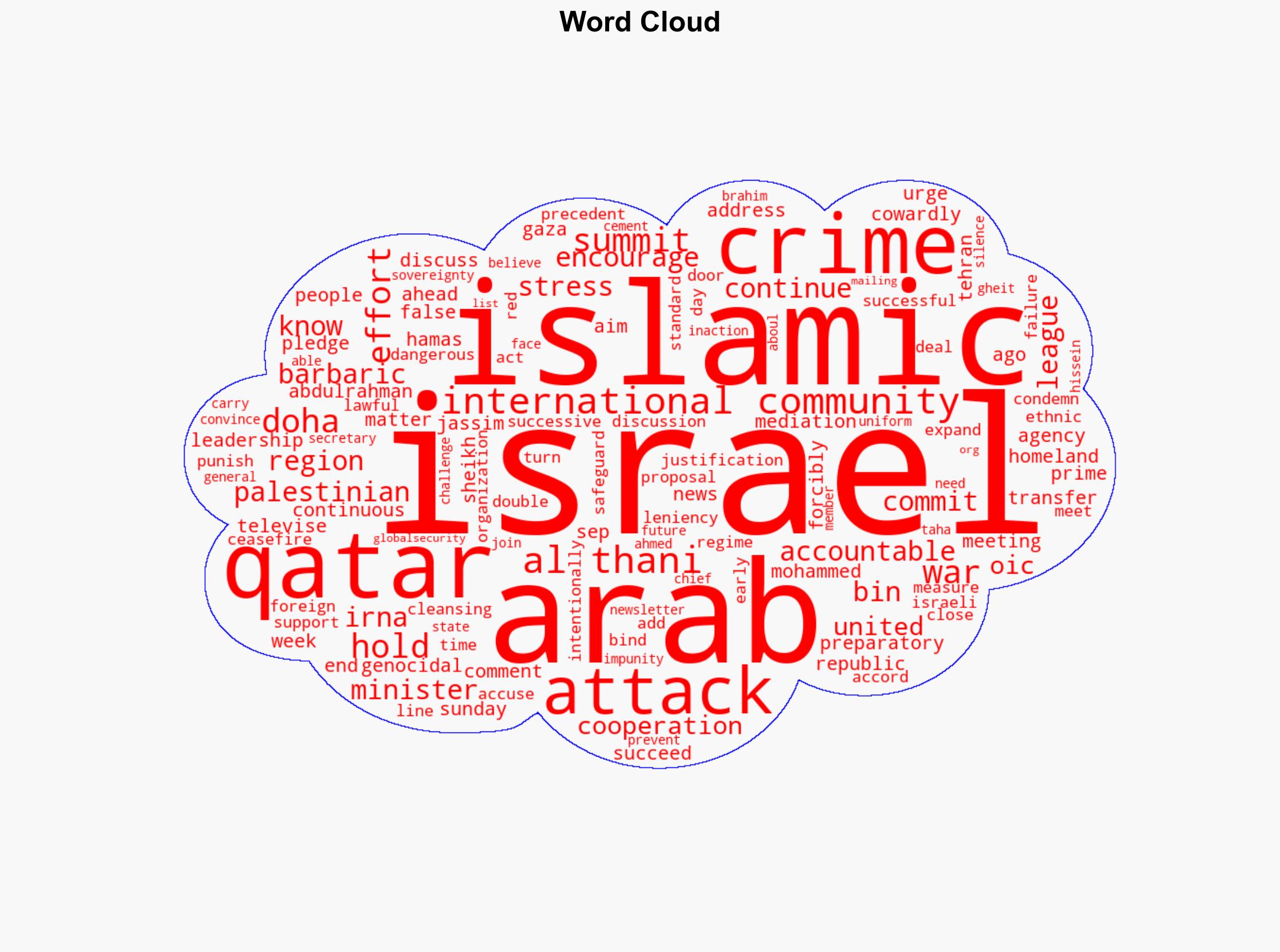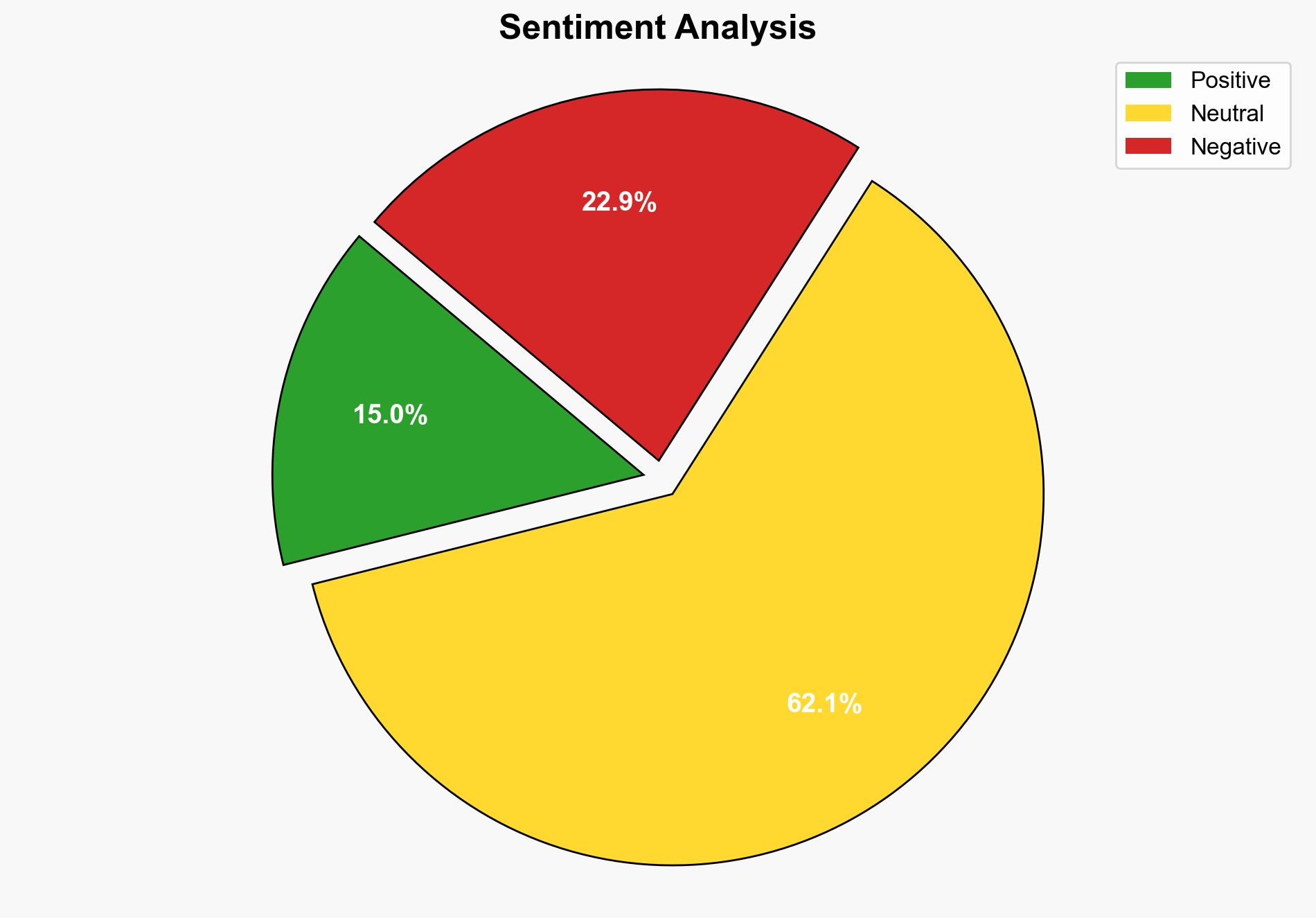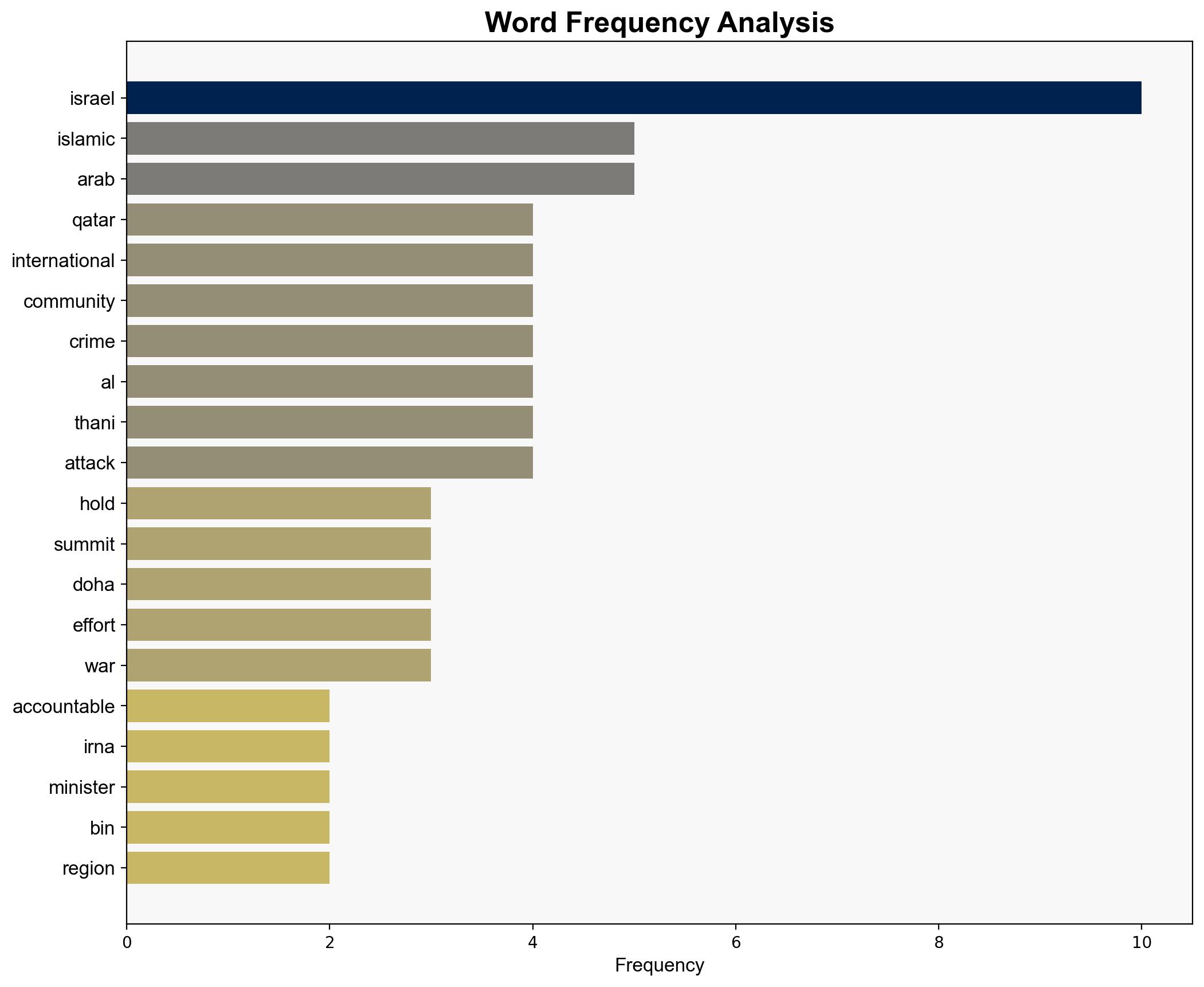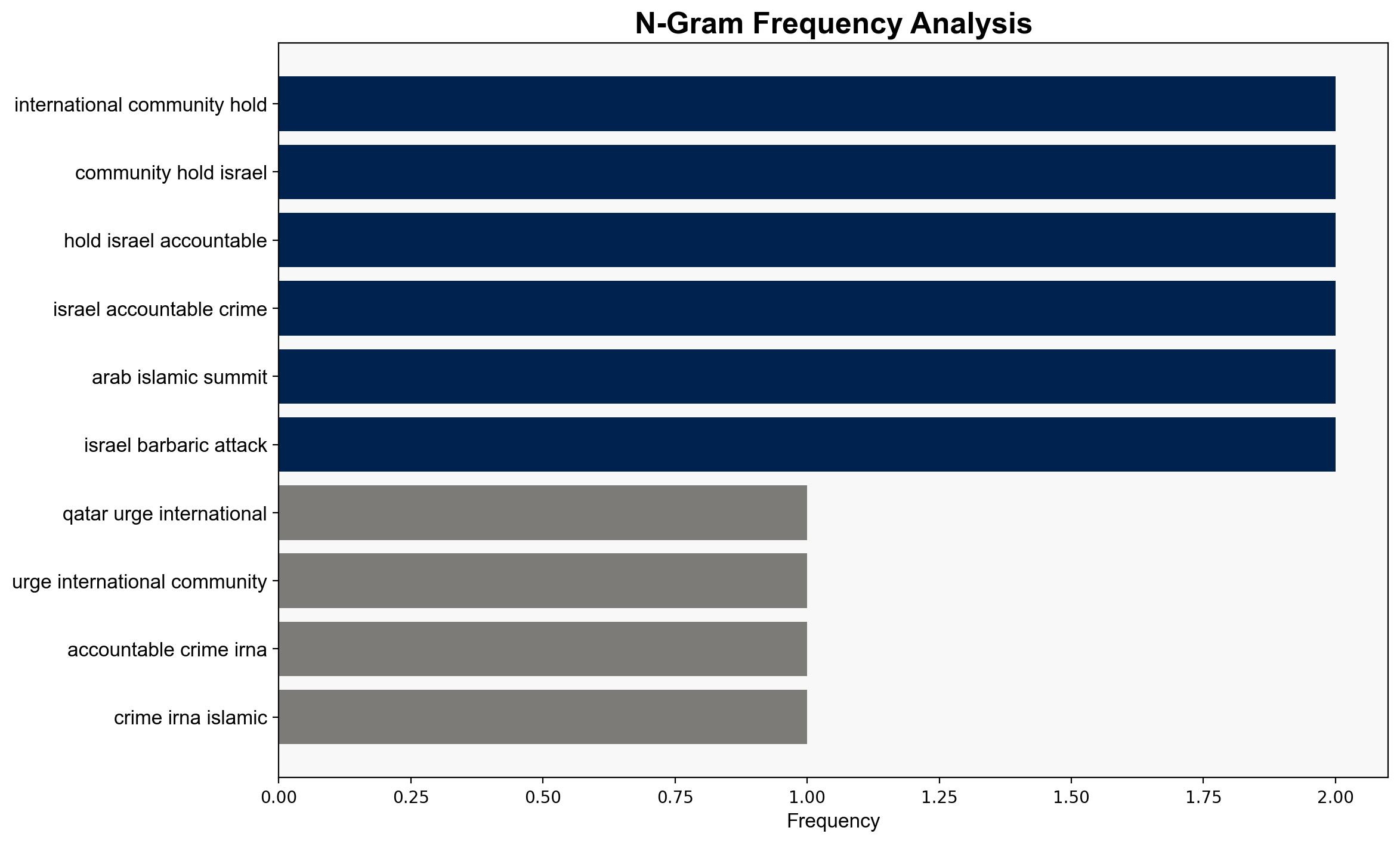Qatar urges international community to hold Israel accountable for its crimes – Globalsecurity.org
Published on: 2025-09-15
Intelligence Report: Qatar urges international community to hold Israel accountable for its crimes – Globalsecurity.org
1. BLUF (Bottom Line Up Front)
The most supported hypothesis is that Qatar’s call for accountability is primarily aimed at strengthening its diplomatic influence within the Arab and Islamic world. This hypothesis is supported by Qatar’s active mediation efforts and its strategic positioning in regional politics. Confidence level: Moderate. Recommended action: Monitor Qatar’s diplomatic engagements and shifts in regional alliances, particularly within the Arab League and OIC.
2. Competing Hypotheses
1. **Diplomatic Influence Hypothesis**: Qatar’s statements are primarily aimed at enhancing its diplomatic influence and leadership role in the Arab and Islamic world by positioning itself as a champion of Palestinian rights.
2. **Domestic Political Pressure Hypothesis**: Qatar’s actions are driven by domestic political pressures and the need to appease internal and regional audiences who are critical of Israel’s actions.
3. Key Assumptions and Red Flags
– **Assumptions**: It is assumed that Qatar’s statements reflect genuine policy positions rather than rhetorical posturing. Another assumption is that regional dynamics are static and not influenced by external powers.
– **Red Flags**: The lack of concrete actions following the statements could indicate rhetorical posturing. Additionally, the potential for misinterpretation of Qatar’s intentions by other regional actors could lead to diplomatic friction.
4. Implications and Strategic Risks
– **Geopolitical Risks**: Qatar’s stance may strain its relations with countries that have normalized ties with Israel, potentially impacting regional alliances.
– **Economic Risks**: Prolonged tensions could affect economic cooperation within the Gulf Cooperation Council (GCC).
– **Escalation Scenarios**: If Qatar’s calls lead to increased regional polarization, there could be a risk of diplomatic or economic retaliation from Israel or its allies.
5. Recommendations and Outlook
- Monitor Qatar’s diplomatic initiatives and statements for shifts in tone or focus, which may indicate changes in strategy.
- Engage in dialogue with regional partners to assess their perceptions of Qatar’s actions and potential impacts on regional stability.
- Scenario Projections:
- **Best Case**: Qatar’s mediation efforts lead to renewed peace talks and regional stability.
- **Worst Case**: Increased tensions lead to a breakdown in regional alliances and economic cooperation.
- **Most Likely**: Qatar continues to advocate for Palestinian rights while balancing its regional relationships.
6. Key Individuals and Entities
– Sheikh Mohammed bin Abdulrahman bin Jassim Al Thani
– Ahmed Aboul Gheit
– Hissein Brahim Taha
7. Thematic Tags
national security threats, regional diplomacy, Middle East politics, international accountability




